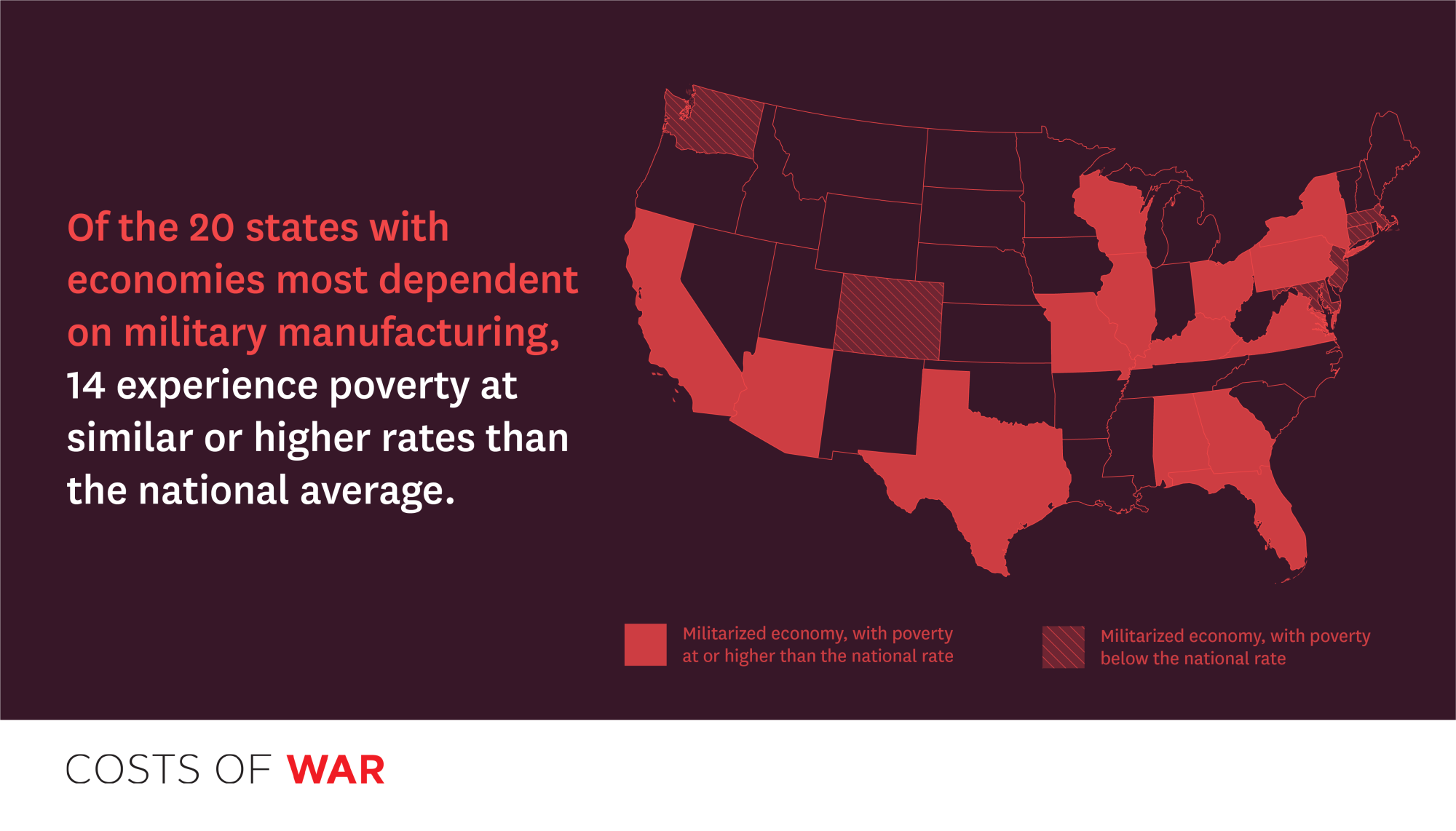Paper
Economist Miriam Pemberton (Associate Fellow at the Institute for Policy Studies) describes how, when the U.S. military budget decreased after the Cold War, military contractors initiated a strategy to protect their profits by more widely connecting jobs to military spending. They did this by spreading their subcontracting chains across the United States and creating an entrenched war economy. Perhaps the most infamous example: Lockheed Martin’s F-35 fighter jet, which is built in 45 states.

While that strategy further entrenched military spending as a priority for U.S. lawmakers by connecting jobs in more congressional districts to military spending increases, these jobs don’t always bring widely-shared prosperity: Of the 20 states with economies most dependent on military manufacturing, 14 experience poverty at similar or higher rates than the national average.
.png) Looking at two case studies, HybriDrive and CALSTART, the paper illustrates how the military can redirect its weapons and technological production capacity towards civilian uses and decarbonize the U.S. economy, given the right policy environment. The report makes clear that significant military spending cuts must be made and those funds must be redirected to green civilian industrial activities in order to transition from a militarized to a decarbonized economy.
Looking at two case studies, HybriDrive and CALSTART, the paper illustrates how the military can redirect its weapons and technological production capacity towards civilian uses and decarbonize the U.S. economy, given the right policy environment. The report makes clear that significant military spending cuts must be made and those funds must be redirected to green civilian industrial activities in order to transition from a militarized to a decarbonized economy.
